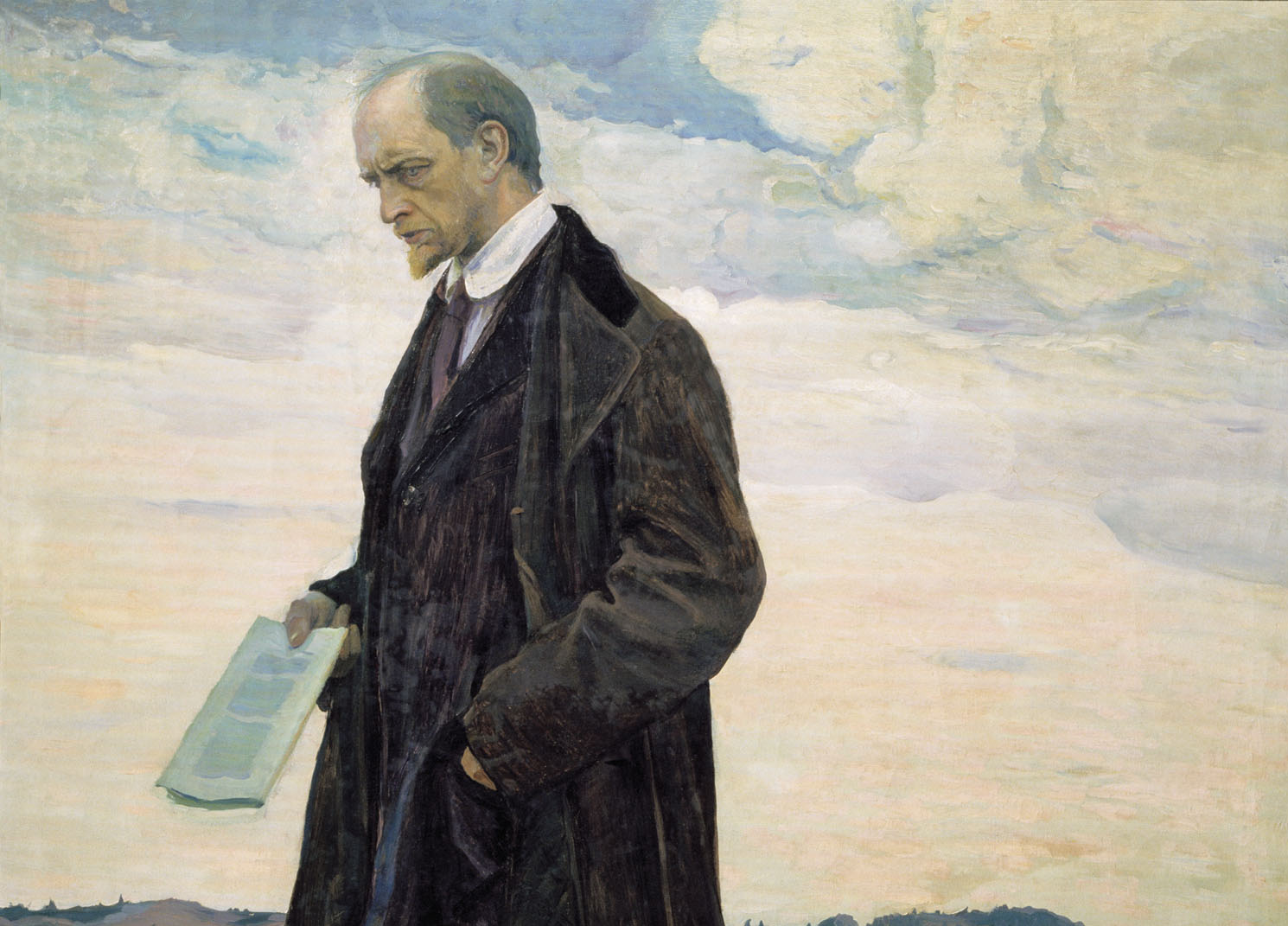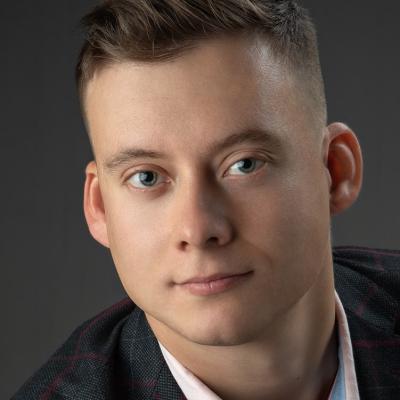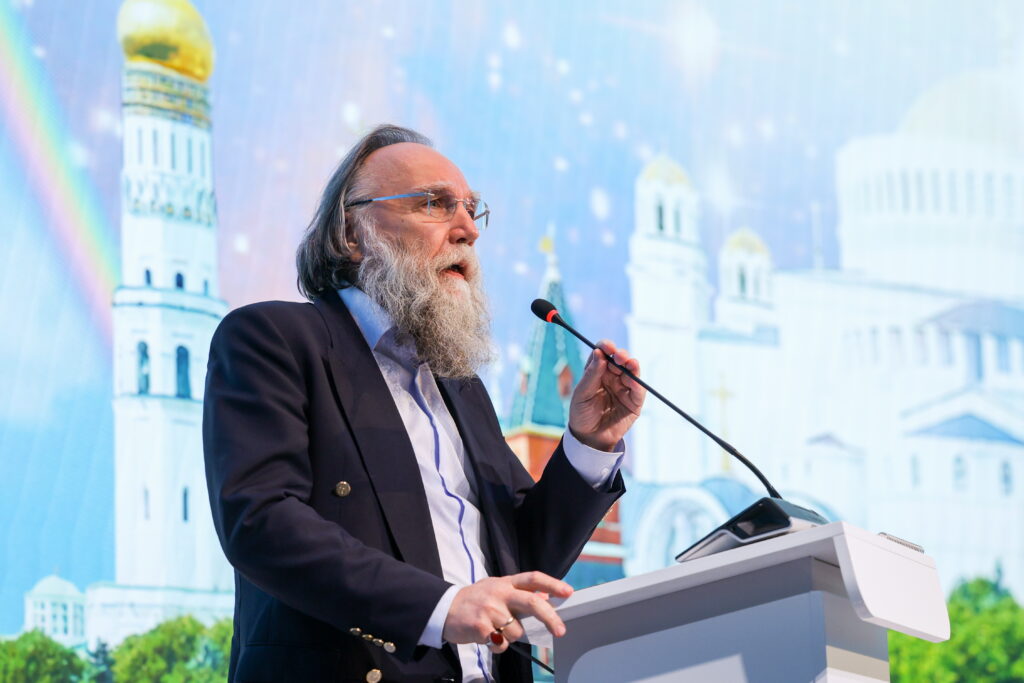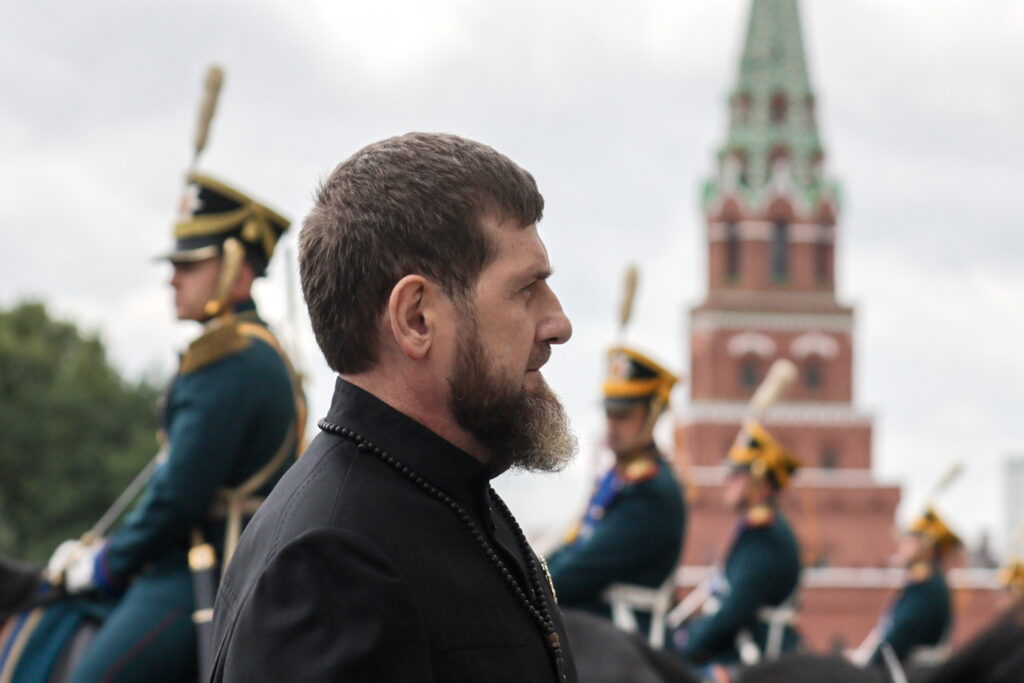In her recent essay, “In search of Putin’s philosopher,” Marlene Laruelle argues it is best to be wary of claims that one thinker or another is responsible for Russian President Vladimir Putin’s political strategy. Ever since Putin came to power in 2000, it has been fashionable among researchers, journalists and politicians to try and to discover “how Putin thinks” by highlighting the influence of one philosopher or other. Clearly they are not always right. To call Putin a politician who is pursuing any sort of ideological or philosophical concept on practice is, by and large, as valid as calling Trump a true republican-conservative: IE, total nonsense. Still, this does not exclude that Putin’s inner circle is predisposed to certain ideological paradigms, in this case – the works of Ivan Ilyin.
Ivan Ilyin is quoted and mentioned not only by the president of Russia, but by the prime-minister Medvedev, foreign minister Lavrov, several of Russia’s governors, patriarch Kirill, various leaders of the United Russia Party and many others besides.
It is about more than just quotes here and there. Ilyin’s books were recommended as a must read by two of the Kremlin’s “grey cardinals” – Vladislav Surkov and Vyacheslav Volodin. Mikhael Zygar, in his book “All the Kremlin’s Men,” claims that it was precisely these works of Ilyin that influenced Putin’s definition of traditional Russian values. We could argue for a long time whether this means that he is just one of the “approved Kremlin philosophers,” or something much bigger, but I would like point out something simpler to prove: Ilyin — who the state has been promoting for the last 15 years as a genuine Russian philosopher, exemplary statist and true Russian patriot — is a very dubious historical figure to draw inspiration from, even an inappropriate person just to quote. He was a proponent of fascist ideology; a trait he did not renounce even after the end of the Second World War.
To get around this awkwardness, Ilyin’s works tend to be divided into two categories. The first one is made up of his works on Russian statehood and spirituality, which are considered respectable and worthy of quoting by the head of the state and others. The second category: dubious texts about fascism that Putin does not quote, so can be ignored. No such divide, in essence, exists between these categories, only that he is just being more explicit in the second category. Ilyin is in fact quite consistent; his ideas of spirituality and the Russian state are closely linked to his positive views of the regimes of Hitler, Mussolini, Salazar and Franco.
Here is Ilyin in 1934, writing about the Russian nation in a style similar to the fascist writings of Gabriele D’Annunzio, a poet and fascist politician:
“This idea should be state-historical, state-national, state-patriotic, state-religious. This idea should stem from the very fabric of Russian soul and Russian history, from its spiritual hunger. This idea should speak of the essence of Russians – both of the past and of the future – it should light the way for the generations of Russians to come, giving meaning to their lives and giving them vigor…What could that be? It is the idea of upbringing of the national spiritual quality in Russian people. This is above all. This is artistic. This is for the ages. There will be no Russia without it”.
When speaking of the “spiritual quality” Ilyin means the unique way that Russians “love and believe”; he is openly calling for the suppression of the rational in people, proposing to shape a new kind of man by the “new selection of people”. Those who would not make this selection will be degraded to “the last rank in society”, also “people that are incapable of self-control shall be restrained and stigmatized”. Ilyin demands of these new people to “unconditionally love and unconditionally believe”. These are the objects for love according to Ilyin: “God, motherland and the national vozhd* ( [Russian vozhd’.] A leader, a person in supreme authority)”.
According to Ilyin, Russians have a “their own, special” faith that is superior to the Catholicism and Protestantism – which are flawed religious to begin with. The motherland is a combination of challenges and burdens that descended upon the peoples that suffered most in history:
“No one nation in the world has had the same amount of burden and the same task as the Russian people. And no one nation has gained out of these trials and ordeals so much strength, so much uniqueness and so much spiritual depth. Our Cross [burden] is heavy”.
The burdens that afflict Russian people, according to Ilyin, are the burdens of the land, the burden of harsh climate and the hundreds of nations that Russians were destined to “let live, breath and give them a great motherland”. It is especially interesting how Ilyin sees Russia’s history as the centuries-long “defense and struggle” – Russia is performing an important mission defending itself for centuries from the invading neighbors:
“it was not us who “took” this land: plain, open and defenseless – it came to us; it made us possess it, century after century sending invading hordes of nomads and armies of settled neighbors our way”.
The way he sees this history feeds into his political program – much of his attention is devoted to religious matters, as well as patriotic militarized entities that should become the foundation of the new regime:
“the rescue of Russia stems from the upbringing and strengthening of Russian national knighthood. It encompasses it all: the idea, the agenda and the struggle. It is the only thing that is solely right and solely needed. All the rest is the appearance, development and the consequences of this”.
Ilyin does not forget the army as well: “The army represents the unity of the peoples; its courageous foundation; its will, it knightly honor. This is how the people should view it”. Moreover, Ilyin clearly states what the relationship between the army and society should be like: “the people should not and can’t dare to contraposition themselves to the army”. The parallels to other fascist thinking across Europe at the time is uncanny.
This should not come as a surprise. Ilyin trusts the people only to love and believe but not to rule the country in any way: “the masses can achieve much in a fight, but its ability to reason remains pathetic”. This is what fuels his hatred of liberal democracy and popular rule in principle and his fascination with the idea of “national vozhd” or even “national dictator”, who by default can’t be a subject to western-style power limitations nor the criticism of his “loving” Russian peoples:
“And whoever does not unconditionally love his national vozhd and does not believe him, believe in him is not sending him his beams of loyalty, force and inspiration that comes from the heart and of the will…will lose him; this is exactly why the enemies try to weaken and compromise with doubts, mockery, demonization and slander the image of the vozhd, the Sovereign”.
Basically, Ivan Ilyin is proposing for Russia a creation of a national dictatorship that would rely on the exceptional roles of the church and the army, and would engage in constant “reeducation” of people for the sake of a holy mission, including a “defence” of vast Eurasian landmasses from a multitudes of enemies, as well as a nurturing of lesser nations that live on these territories. His philosophy is based on the cult of “burdens and ordeals” of the Russian peoples, its exceptionalism and certain superiority, and demands for a national spiritual renewal, selection and homogenization of the society based upon the criteria of “spiritual worth” with all the consequences for the “wrong people”.
All the above mentioned speaks for the similarities between Ilyin’s philosophy and the philosophy of the European fascists of 1930s and Ilyin himself is not denying that. In his 1933 essay “National Socialism: ‘A New Spirit’”, Ilyin — the “spirit” of national-socialism — characterizes it as: “patriotism, faith in the uniqueness of the German peoples and the strength of the German genius, the feeling of honor, readiness for the sacrificial service (fascist “sacrificio”), discipline, social justice and non-class brethren – all-people’s unity”. Ilyin directly compares it with the White Russian émigré movement-“Basically this spirit is aligning the German national-socialism with Italian fascism. But not only with that but with the spirit of Russian White movement as well”. Indeed, Ilyin is standing for the same values he is praising in Italian fascism and German national-socialism.
Traditionally, defenders of Ilyin say his sympathy towards Nazis were first of all related to the precedence of his anti-communist views, a conviction that communism needed to be stopped at all costs:
“What did Hitler do? He has stopped the process of bolzevisation giving a huge favor to all the Europe…While Mussolini leads Italy and Hitler leads Germany – European culture is given a reprieve”. But Ilyin goes even further by giving a direct justification of the fascist model of government:
“Germans were able to break the democratic deadlock…What is happening here is the great social intercalation; but not of the property, but of state-political and cultural-guidance nature…The stratum of those who guide is being renewed consequently and radically…In accordance with new mentality…Those who do not like the “New Spirit” are being pulled out…This spirit is the substance of this whole movement; it burns in the hearts of every true national-socialist, it flexes his muscles, rings in his words and shines in his eyes…The unjust blackening and slander impedes adequate comprehension of it, sins against the truth and hurts the entire humankind”.
In 1937 Ilyin claims: “By proposing the ideas of “soldato” and “sacrificio” as the main civic ideas the Italian fascism has spoken out in accordance to its own Roman tradition the very things that the Rus’ was originally based upon and built: ideas of Monomakh and Sergius of Radonezh, ideas of Russian missionaries and Russian colonization, ideas of Minin and Pozharsky, ideas of serfdom, ideas of Peter the Great and Suvorov, ideas of Russian Army and of the White movement”. And “fascism does not give us a new idea, but only gives us new attempts to implement this Christian, Russian, national idea in our given conditions in accordance with our views”.
Even after the war, in 1948 in his article “About fascism” Ilyin writes: “Fascism is a complex, multifaceted and historically speaking by far not a used up phenomena. It has the healthy and the sick, old and new, state-conservative and destructive features. That is why in assessing it we need to be calm and just”. In this piece Ilyin is enumerating the mistakes that Hitler and Mussolini made and finishes with a warning to his future followers: “Franco and Salazar understood this and are trying to avoid these mistakes. They don’t call their regimes “fascist”. Let’s hope that Russian patriots will reflect upon the mistakes of fascism and national-socialism in full and will not repeat them”. This article is part of the collection known as “Our tasks” – quotes from where feature Putin’s public speeches.
Despite all the horrors of war, Holocaust and unseen destruction of Europe, Ivan Ilyin did not reject the ideas of fascism but immediately proposed how to make it better, by avoiding several mistakes his contemporaries made. This is something you can get convicted with in today’s Russia under the “Article 354.1 Criminal code of the Russian Federation. Rehabilitation of Nazism”. The very fact that the rulers of Russia, the Duma, the Church and the TV are cleansing the image of Ilyin, legitimizing him as a true Russian philosopher cannot but cause total rejection and resentment. Moreover in a country where its people are proud of “defeating fascism”, cherishing Ilyin is a tragic irony.










